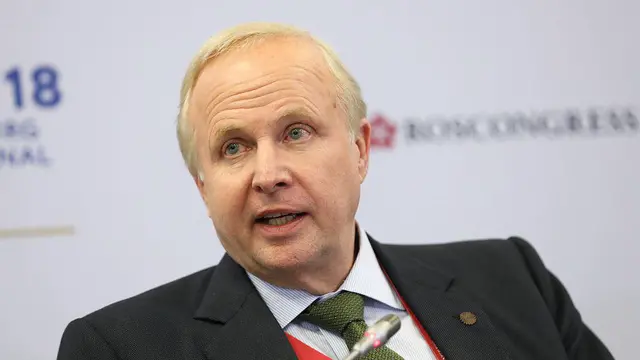The world's top energy producers gathered in Shanghai this week for the LNG2019 conference, the first time the gathering was held in China in its 50-year history– a testament to the importance of the country and the surging demand for gas as it diversifies its energy mix.
Multinational BP, which has been in China for over 45 years, is planning to expand nationally across the board, thanks to the liberalization of the sector announced last June. BP CEO Bob Dudley, who first worked in China in the 1980s, shares insights with CGTN on BP's China expansion and the energy market outlook.
BP on China's energy market
“China by 2040 will be the largest country in the world for energy consumption of all forms,” Dudley said, adding that China's further opening up will benefit the sector.
“We've been exploring in China for many years. China is going to play an important role in energy and geopolitics because the growth in energy demand is going to rise. China's right at the forefront. And China is a great place to learn, experiment and work together in partnerships,” the CEO said.
Meanwhile, Dudley is positive on LNG growth in China. “Today, three percent of energy is provided by LNG in China. Many countries have 20 percent LNG in their mix,” he noted.
Dudley told the LNG2019 conference that global LNG trade is set to more than double over the next 20 years. He pointed out the case for China to use more gas: “It's clean burning fuel, and as the distribution network has been built out, I absolutely see the growth here in China for LNG.”
BP's expansion in China
The energy giant is expanding its businesses in the country – petrochemical plants, electric charging stations, LNG import terminals as well as biofuel solutions are all on Dudley's list.
And of course, there's the rapid transformation in fuel retail, which China has opened up to more foreign investment. Chinese motorists can expect to see more branded gas stations offering better retail experiences very soon. BP just opened its first self-branded filling station in Shandong Province. And the company is seeking to add 1,000 over the next five years, based on Dudley. That's on top of the co-branded stations it runs with CNPC and Sinopec.
BP on global energy transition
Globally the industry is going through an energy transition towards cleaner solutions – more renewables, more gas, and cleaner production.
“The world has got a real dual challenge of providing more energy and cleaner energy,” Dudley commented. “It's not a race to renewables. Renewable is really important but the race is to lower emissions.
“For example coal, we need to make sure it doesn't leak greenhouse gases. So there are lots of efforts on methane detection, monitoring and then stopping leaks. And we have investor pressure that's moving on this as well.”
BP on variables for energy markets
Oil prices are notoriously difficult to predict, but last year and this year probably even more so. Dudley summarized the shift in thinking by quoting a conference speaker who said: “disorder is the new order.”
“Last year, even OPEC thought ‘oh my goodness, there's going to be a shortage of crude oil.' They increased production to anticipate the Iran sanctions and then there were waivers granted. So the price of oil flew up and down pretty rapidly last year. Same factors will work this year,” he explained.
“And then you have the shales in the U.S. that keep producing more than people expect. It's bottlenecked now by infrastructure. So that will depend on how fast pipelines can be built from the interior in the U.S. to the coast.
“And trade issue broadly is an uncertainty. Our own view is we have not seen any decrease in demand for energy because of the trade issue. But it's hard to predict this year.”
So is BP ready for Brexit? The seasoned CEO has been answering this question very frequently of late. “We're headquartered in London. We have our revenues in U.S. dollars. We pay dividends in U.S. dollars. We are probably the least affected by what could happen either way with Brexit. But staff morale-wise, we have people on both sides of that question in the company. So we just kind of stay out of politics and don't like to take a view and talk about it.”
As much as the world order is changing, what the BP chief wants to emphasize is that “as a company like BP which doesn't really have a national allegiance, it's a big family of management… In the energy industry, we've dealt with geopolitical change for decades and decades all around the world.”
(CGTN)
 简体中文
简体中文





